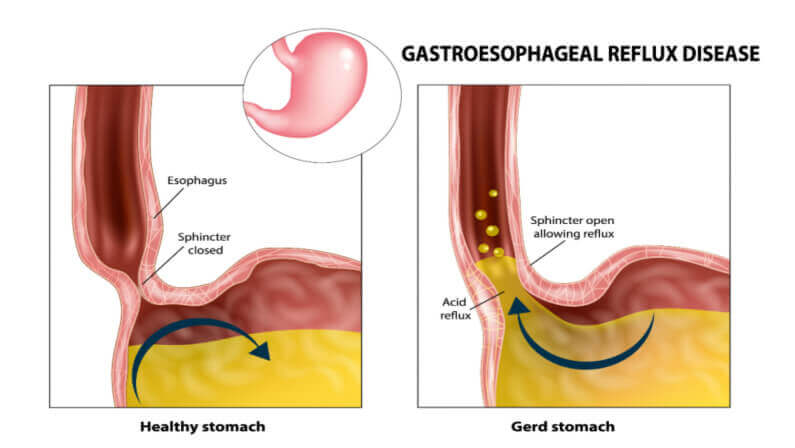Demystifying Heartburn Duration: How Long Does Heartburn Last?
Welcome to our comprehensive guide on understanding the duration of heartburn—an uncomfortable sensation that affects countless individuals. In this article, we delve into the intricacies of heartburn, exploring the factors influencing its duration, the typical timeframe it lasts, and strategies for relief. By addressing this common concern, we aim to empower you with the knowledge needed to manage heartburn effectively and lead a more comfortable life.
Heartburn Explained:
Heartburn, often described as a burning sensation in the chest, is a result of stomach acid refluxing into the esophagus. This discomfort arises from the lower esophageal sphincter (LES) failing to close properly, allowing stomach acid to flow backward. Common triggers include certain foods, overeating, and lying down after meals. Understanding the underlying causes is key to comprehending how long heartburn might persist and how to find relief.

Factors Influencing Heartburn Duration:
The duration of heartburn can vary widely based on several factors. Your diet, lifestyle habits, and individual body responses all play a role. Spicy and fatty foods, caffeine, and alcohol can exacerbate heartburn and potentially prolong its duration. Additionally, lifestyle choices such as smoking and excess stress can contribute to the discomfort’s persistence. By identifying your personal triggers and addressing them, you can influence how long heartburn lasts and minimize its impact.
Typical Heartburn Duration:
The duration of a heartburn episode can vary from person to person and episode to episode. Generally, heartburn lasts for a few minutes to a couple of hours. It often occurs shortly after consuming trigger foods or beverages. Mild cases may subside relatively quickly, while more intense episodes might persist for a longer duration. Understanding your body’s signals and triggers can help you anticipate the duration of your heartburn episodes and take proactive steps for relief.
Occasional vs. Chronic Heartburn:
Distinguishing between occasional and chronic heartburn is crucial. Occasional heartburn typically occurs after specific triggers and is relatively short-lived. However, if you experience heartburn more than twice a week for an extended period—typically more than a few weeks—it may indicate a chronic condition known as gastroesophageal reflux disease (GERD). Chronic heartburn can lead to more severe symptoms and potential complications, making it vital to address the condition with medical guidance.
Heartburn Relief Timeframe:
Relief from heartburn can vary based on the strategies you employ. Over-the-counter antacids often provide relatively quick relief by neutralizing stomach acid. They can start working within minutes. Other medications, like H2 blockers or proton pump inhibitors, may take longer to alleviate symptoms but offer longer-lasting relief. Natural remedies such as ginger or chamomile tea can also contribute to relief over time. Experimentation with different methods can help you find the most effective approach for your unique needs.
Seeking Professional Help:
If you find that heartburn episodes are frequent, severe, or affecting your quality of life, it’s advisable to consult a healthcare professional. A medical expert can conduct a thorough evaluation to determine whether your symptoms indicate a more serious condition such as GERD. They may recommend diagnostic tests like endoscopy to assess the extent of esophageal damage. Professional guidance ensures you receive accurate diagnosis and tailored treatment strategies, helping you manage heartburn effectively.
Lifestyle Changes for Prevention:
Preventing heartburn involves making informed choices and adjustments to your daily routine. Portion control, eating smaller meals, and avoiding trigger foods before bedtime can help reduce the risk of heartburn episodes. Elevating your head while sleeping and maintaining an upright posture after eating can also discourage stomach acid from flowing back into the esophagus. Small changes can make a significant difference in minimizing the duration and frequency of heartburn.
User Experiences and Insights:
Real-life experiences offer valuable insights into managing heartburn. Many individuals have found relief by identifying their triggers and making appropriate lifestyle changes. Sharing experiences and connecting with others who face similar challenges can provide a sense of support and empathy. It’s important to remember that each individual’s journey with heartburn is unique, and finding effective strategies often requires a combination of experimentation and professional advice.
FAQs about Heartburn Duration
How long does heartburn typically last?
Heartburn duration varies from a few minutes to a few hours. It depends on factors such as triggers and severity.
Can heartburn last for days?
While rare, heartburn episodes lasting for days can occur. Persistent discomfort should prompt a medical evaluation.
Why does heartburn sometimes last longer than usual?
Factors like trigger foods, stress, and lifestyle habits can prolong heartburn. Identifying these factors helps manage duration.
Does the severity of heartburn affect its duration?
Yes, more severe heartburn may last longer. Addressing triggers and employing relief methods can minimize duration.
Can chronic heartburn cause longer-lasting episodes?
Chronic heartburn (GERD) can lead to more frequent and extended episodes. Professional guidance is crucial for management.
Can heartburn duration vary among individuals?
Absolutely, heartburn duration is individualized. Personal triggers and responses play a significant role in how long it lasts.
What can I do to shorten heartburn duration?
Avoid trigger foods, maintain an upright posture after meals, and consider over-the-counter antacids for quicker relief.
Can stress affect the duration of heartburn?
Yes, stress can exacerbate heartburn and potentially extend its duration. Managing stress through relaxation techniques may help.
Are there natural remedies that can reduce heartburn duration?
Some individuals find relief from heartburn through natural remedies like ginger tea or chewing gum. Experimentation is key.
When should I be concerned about prolonged heartburn duration?
If heartburn episodes persist for days or worsen in intensity, seek medical attention. It could indicate an underlying condition.
Conclusion:
Understanding how long heartburn lasts and the factors influencing its duration empowers you to manage this discomfort effectively. By distinguishing between occasional and chronic cases, exploring relief strategies, and considering lifestyle changes, you can significantly improve your quality of life. Remember, while this guide provides valuable insights, consulting a healthcare professional remains a crucial step in achieving optimal heartburn management.




